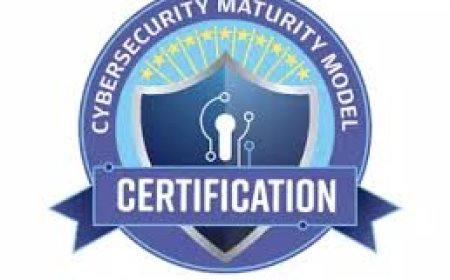Apostille Attestation: Your Comprehensive Guide to Simplified International Document Legalization (Hague Convention Explained)
apostille attestation, apostille documents in UAE, apostille services Dubai ,apostille in UAE, apostille UAE , apostille attestation uae , apostille dubai

In an increasingly interconnected global landscape, the seamless and legally recognized exchange of official documents across international borders is a fundamental necessity for individuals, businesses, and governments alike. Whether you are seeking to pursue higher education abroad, secure international employment, engage in cross-border commercial transactions, or manage personal matters such as marriage, birth registration, or property dealings in a foreign country, your official documents often require a formal process of validation to be legally accepted. The term "Apostille attestation" frequently emerges in this context, signaling a modern, streamlined approach to international document legalization. However, understanding what an Apostille truly is, how it functions, and precisely when it applies is paramount to avoiding costly delays and procedural complexities.
This comprehensive guide is meticulously designed to demystify the concept of the Apostille. We will delve deeply into its foundational legal framework the 1961 Hague Convention Abolishing the Requirement of Legalisation for Foreign Public Documents which revolutionized international document authentication by introducing a simplified, single-step process. We will systematically dissect how an Apostille functions, articulate its profound benefits, highlight the specific types of documents eligible for this certification, identify the designated authorities responsible for its issuance, and outline general requirements, associated costs, and realistic timelines. Crucially, we will also explicitly differentiate Apostille from the more traditional, multi-stage "attestation" or "legalization" process, particularly emphasizing its inapplicability for countries like the United Arab Emirates (UAE) that are not signatories to the Hague Convention. Our aim is to provide you with a clear, authoritative understanding of Apostille attestation, empowering you to navigate the international document validation landscape with confidence and efficiency.
What is an Apostille? A Foundational Understanding
At its core, an Apostille is a specialized certificate issued by a country's designated authority that authenticates the seals and signatures of officials on public documents. It essentially confirms that a document (such as a birth certificate, marriage certificate, degree, or court order) was issued by a legitimate authority in the country where it originated, thereby rendering it legally valid for use in other countries that are also signatories to the 1961 Hague Convention.
The Apostille itself is a unique, standardized, square-shaped stamp or printed form consisting of 10 numbered fields. Its distinct format ensures universal recognition and easy verification among Hague Convention member states.
The 1961 Hague Convention: The Genesis of the Apostille
The concept of the Apostille was born out of the 1961 Hague Convention Abolishing the Requirement of Legalisation for Foreign Public Documents. Before this landmark international treaty, the legalization of documents for international use was a cumbersome and multi-tiered process. It typically involved numerous steps, including notarization, attestation by various government departments in the country of origin, and finally, legalization by the embassy or consulate of the destination country. This traditional "legalization" chain was time-consuming, expensive, and often confusing due to varying requirements across different embassies.
The Hague Convention was established to simplify this complex process for documents exchanged between its member countries. By agreeing to the Convention, signatory nations recognize each other's public documents if they bear an Apostille, effectively eliminating the need for further diplomatic or consular legalization. This simplification significantly expedited international document exchange and reduced administrative burdens.
How the Apostille System Works: The Simplified Process
The beauty of the Apostille system lies in its remarkable simplicity. For a document to be accepted in a Hague Convention member country, if it originated in another Hague Convention member country, it only requires a single step: the issuance of the Apostille certificate.
-
Document Origin: The public document must originate from a country that is a signatory to the 1961 Hague Convention.
-
Designated Authority: Each signatory country designates specific authorities responsible for issuing Apostilles (e.g., a country's Ministry of Foreign Affairs, Secretary of State, Department of Justice, or specific regional offices).
-
Authentication: The designated authority verifies the authenticity of the signature, the capacity in which the signatory has acted, and, where appropriate, the identity of the seal or stamp on the original public document.
-
Apostille Issuance: Upon successful verification, the designated authority affixes the Apostille certificate directly onto the original document or attaches it securely.
-
International Acceptance: Once an Apostille is issued, the document is then directly accepted as legally valid in any other country that is also a signatory to the Hague Convention, without requiring any further embassy or consular legalization in the destination country.
Key Benefits of the Apostille System
The Apostille system offers significant advantages over the traditional multi-step legalization process:
-
Simplicity: Reduces a complex, multi-stage process to a single, straightforward step.
-
Speed: Significantly shortens the processing time for international document recognition.
-
Cost-Effectiveness: Eliminates multiple sets of fees charged by various governmental and diplomatic offices.
-
Universal Recognition (among signatories): Ensures that once a document has an Apostille, it will be recognized by all other Hague Convention member states without further authentication.
-
Fraud Prevention: The standardized format and strict issuance procedures of the Apostille enhance document security and help prevent forgery.
Types of Documents Eligible for Apostille Attestation
A wide array of "public documents" can be apostilled. These generally fall into the following categories:
-
Documents from an Authority or an Official Connected with the Courts of the State:
-
Birth Certificates
-
Marriage Certificates
-
Death Certificates
-
Divorce Decrees
-
Court Orders
-
Powers of Attorney (when notarized by a public notary whose signature is registered with the Apostille authority)
-
Affidavits (when notarized)
-
-
Administrative Documents:
-
Educational Certificates (Degrees, Diplomas, Transcripts) issued by recognized educational institutions.
-
Police Clearance Certificates (PCCs)
-
Medical Certificates
-
Experience Certificates
-
-
Notarial Acts:
-
Documents witnessed and certified by a Notary Public.
-
Certified True Copies of original documents.
-
-
Official Certificates Placed on Documents Signed by Persons in Their Private Capacity:
-
Such as official certificates recording the registration of a document or the fact that it was in existence on a certain date.
-
Important Note: The Apostille Convention specifically applies to public documents. Private documents (e.g., a simple letter or a private contract) typically need to be notarized by a public notary first to become "public documents" (i.e., the notary's signature and seal become the public part that is then apostilled).
Issuing Authorities for Apostille Attestation
Each country that is a signatory to the Hague Convention designates specific authorities responsible for issuing Apostilles. These can vary widely but commonly include:
-
Ministry of Foreign Affairs: (e.g., in India, the Ministry of External Affairs; in the UK, the Foreign, Commonwealth & Development Office).
-
Secretary of State's Office: (e.g., in the United States, typically the Secretary of State's office in the state where the document was issued, or the U.S. Department of State for federal documents).
-
Department of Justice / Attorney General's Office: In some jurisdictions.
-
Designated Courts or Government Departments: Specific courts or ministries may be authorized to issue Apostilles for documents originating from their respective domains.
It is always advisable to check the official website of the Hague Conference on Private International Law or the foreign affairs ministry of the issuing country to ascertain the current designated Apostille authority.
Requirements, Costs, and Processing Times for Apostille Attestation
While the process is simplified, specific requirements, costs, and processing times for obtaining an Apostille vary by the issuing country and the designated authority:
A. General Requirements:
-
Original Document: The document must be the original public document (or a properly certified true copy, if permitted for that document type). Laminated documents are generally not accepted.
-
Supporting Documentation: A copy of the applicant's passport, a completed application form, and any other specific forms required by the Apostille authority.
-
Prior Certification (if applicable): For some documents, particularly educational or commercial ones, a preliminary attestation by a local or state-level authority might be required before the national Apostille authority will accept it (e.g., university verification for degrees, Chamber of Commerce for commercial documents).
-
Official Translation (if applicable): If the document is not in one of the official languages accepted by the Apostille authority or the destination country, a certified translation may be required.
B. Costs (Indicative Ranges - vary by country):
-
Official Apostille Fees: These are typically nominal, ranging from USD 5 to USD 50 (or equivalent) per document, directly charged by the government authority.
-
Prior Certification Fees: Any fees for notarization, state-level attestation, or university verification will be additional.
-
Courier/Postage Fees: For submitting and receiving documents.
-
Professional Service Fees: If utilizing an attestation agency, their charges are in addition to official fees and vary based on the country and urgency.
C. Processing Times (Indicative Ranges - vary by country and authority workload):
-
Official Processing: Can range from 1-2 business days (for walk-in or express services) to 5-15 business days (for standard mail-in services).
-
Additional Time: If prior certifications (like university verification or state-level attestation) are needed, those steps will add significant time, potentially several weeks.
Apostille vs. Traditional Attestation (Legalization): A Critical Distinction
This is the most crucial clarification, especially in the context of previous discussions about the UAE.
-
Apostille: A single-step authentication process applicable ONLY between countries that are signatories to the 1961 Hague Convention. The document receives an Apostille from its country of origin and is then directly recognized in the destination signatory country.
-
Traditional Attestation / Legalization: A multi-step authentication process applicable for documents exchanged between countries where at least one is NOT a signatory to the 1961 Hague Convention. This typically involves:
-
Notarization/Local Verification (in origin country)
-
Ministry of Foreign Affairs Attestation (in origin country)
-
Destination Country's Embassy/Consulate Legalization (in origin country)
-
Ministry of Foreign Affairs Attestation (in destination country - for countries like the UAE)
-
Why this matters for the UAE: As previously stated, the United Arab Emirates is NOT a signatory to the 1961 Hague Apostille Convention. Therefore, for any document originating from any country (whether it's a Hague signatory or not) and destined for use in the UAE, an Apostille is NOT accepted as the final or sufficient authentication. Instead, the multi-step traditional attestation process, culminating with the stamp from the UAE Ministry of Foreign Affairs and International Cooperation (MOFAIC) within the UAE, is mandatory. Similarly, a document issued in the UAE and intended for use in a non-Hague country also requires traditional legalization.
Common Misconceptions About Apostille Attestation
-
"Apostille is universal for all countries." False. It's only for countries that are members of the Hague Convention.
-
"An Apostille means my document is legal anywhere." False. It means it's legal in other Hague Convention signatory countries. For non-signatory countries, additional legalization steps are required.
-
"My document was apostilled, so it's ready for the UAE." False. The UAE is not a Hague Convention signatory, so an Apostille alone is insufficient for documents destined for the UAE. It will need further attestation by the UAE Embassy in the originating country, and then MOFAIC in the UAE.
-
"I can get an Apostille in my destination country." False. An Apostille must be obtained from the designated authority in the country where the document was originally issued.
The Role of Professional Attestation Services for Apostille
While the Apostille process is simpler than traditional legalization, engaging a professional attestation service can still offer significant advantages, especially for individuals or businesses unfamiliar with the precise requirements of the issuing country's designated authority.
-
Expert Guidance: They provide up-to-date information on the specific requirements, forms, and fees for obtaining an Apostille in various countries.
-
Time-Saving: They manage the submission and collection processes, especially helpful if the designated authority is far away or has limited operating hours.
-
Error Prevention: Their meticulous review of documents ensures all prerequisites are met, reducing the risk of rejection.
-
Secure Handling: They ensure the safe transit and handling of your valuable original documents.
-
Streamlined Process: Even for a single-step process, they can expedite it by knowing the fastest and most efficient channels.
For countries like the UAE, where traditional attestation is required, professional services become even more indispensable, managing the entire complex multi-country chain on your behalf.
Conclusion: Empowering Your International Document Journey
The Apostille attestation system, born from the 1961 Hague Convention, stands as a testament to international cooperation aimed at simplifying the cross-border recognition of public documents. By providing a streamlined, single-step authentication process, it has significantly eased the burden for individuals and businesses operating between its member states.
However, a clear understanding of its scope and limitations is paramount. Crucially, countries that are not signatories to the Hague Convention, such as the United Arab Emirates, do not accept an Apostille as sufficient legalization. For such nations, the traditional, multi-stage attestation process, involving multiple governmental and diplomatic entities in both the origin and destination countries, remains the mandatory pathway. By comprehending these vital distinctions and leveraging expert guidance where needed, you can confidently navigate the complexities of international document legalization, ensuring your certificates are legally recognized and accepted wherever your global aspirations take you.


































